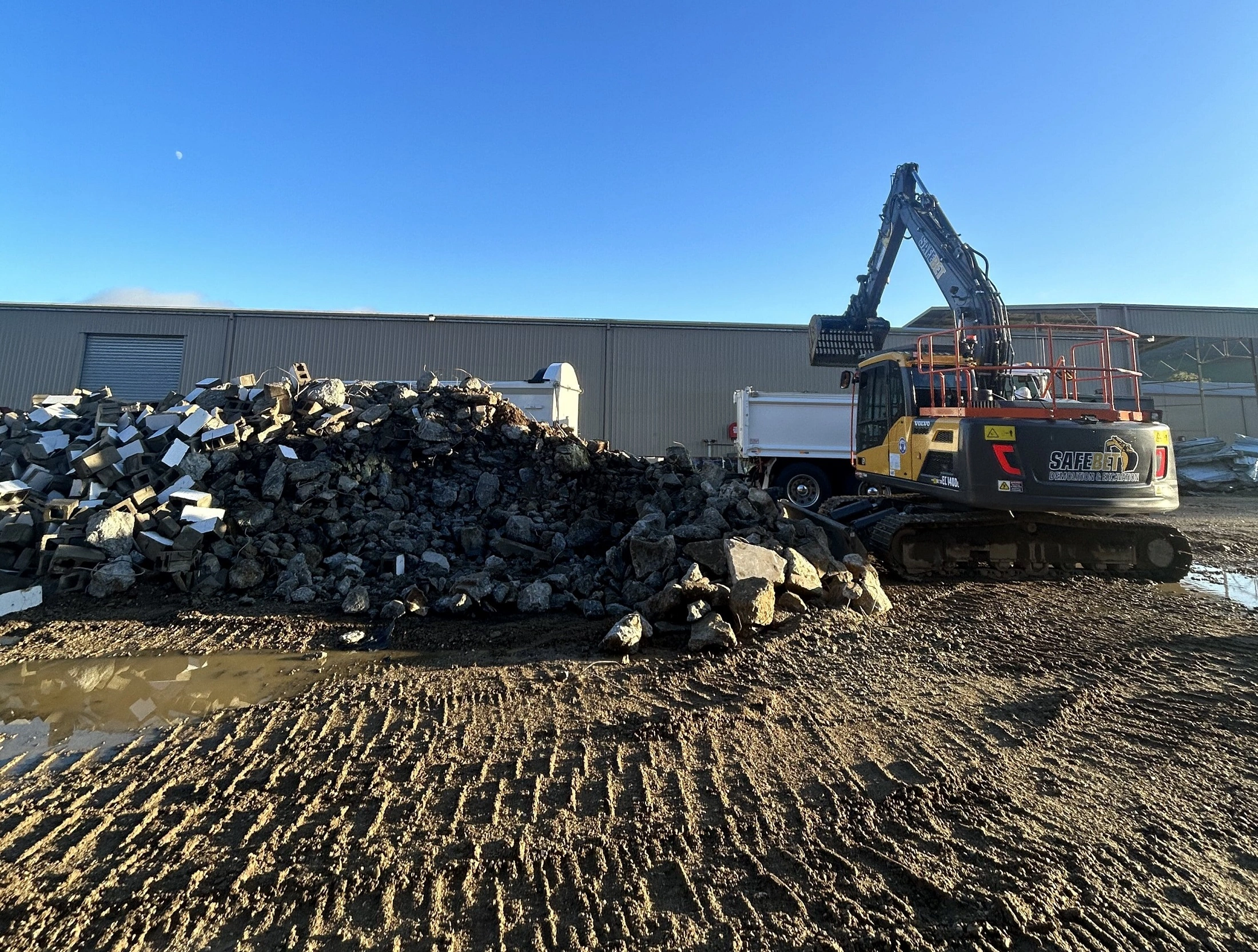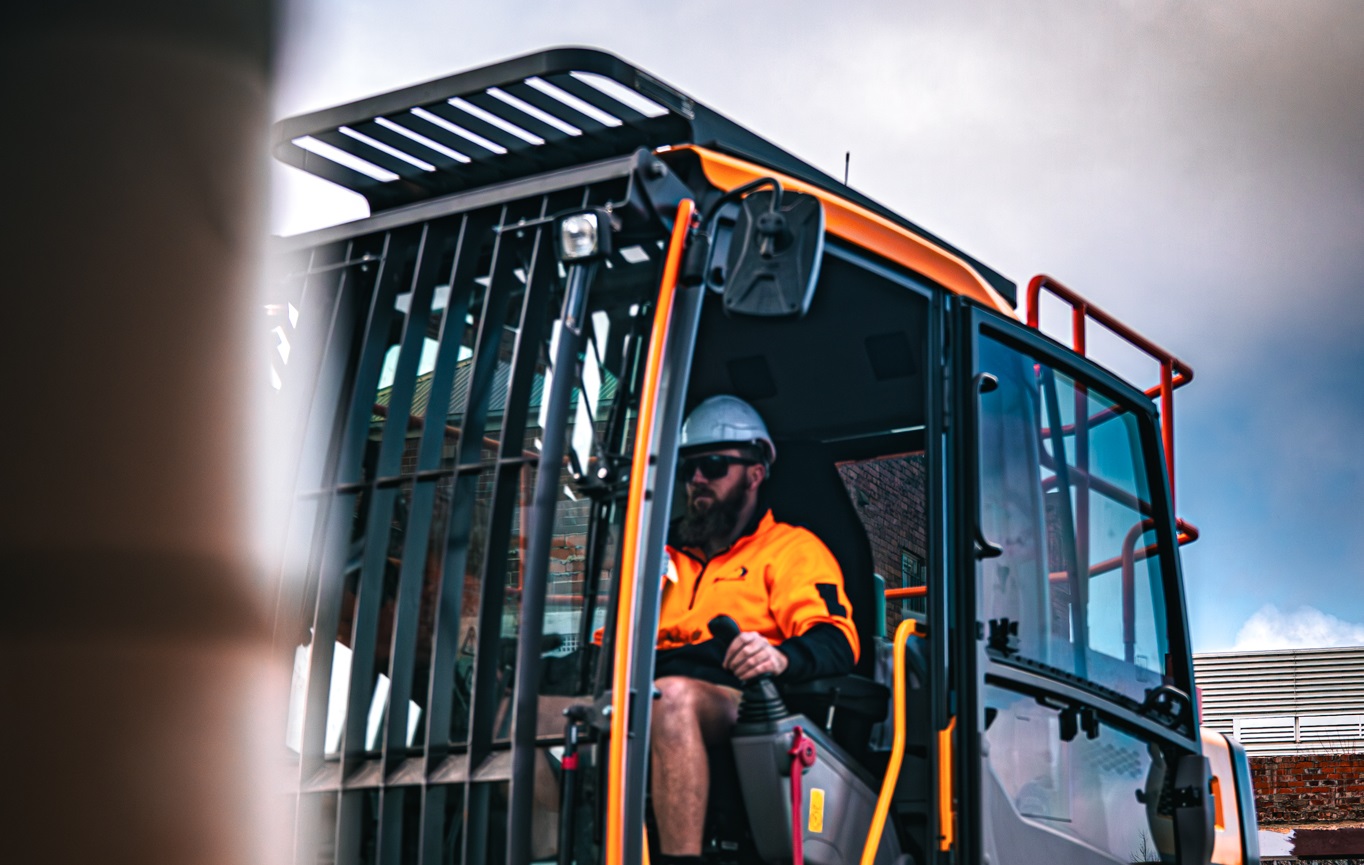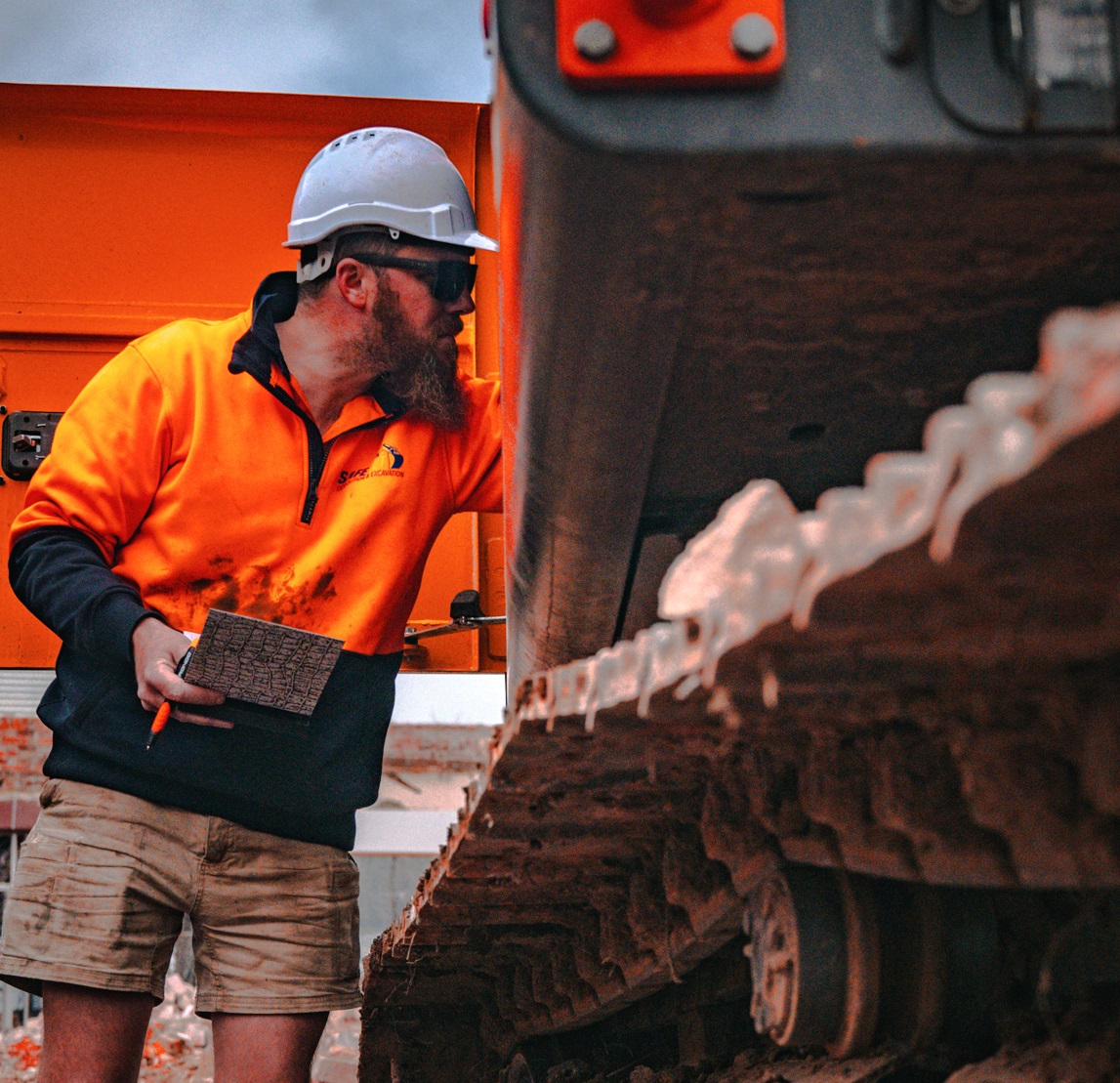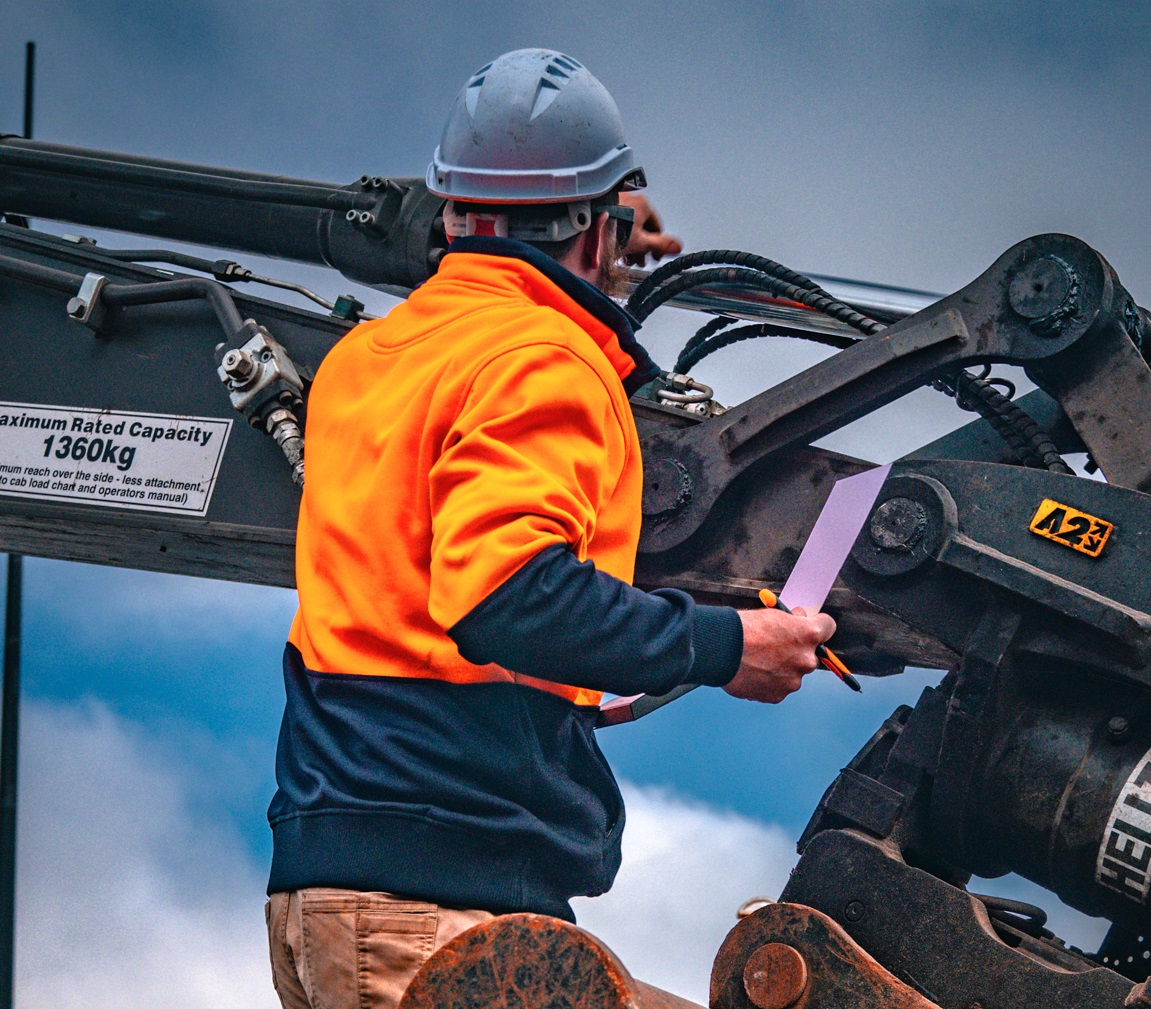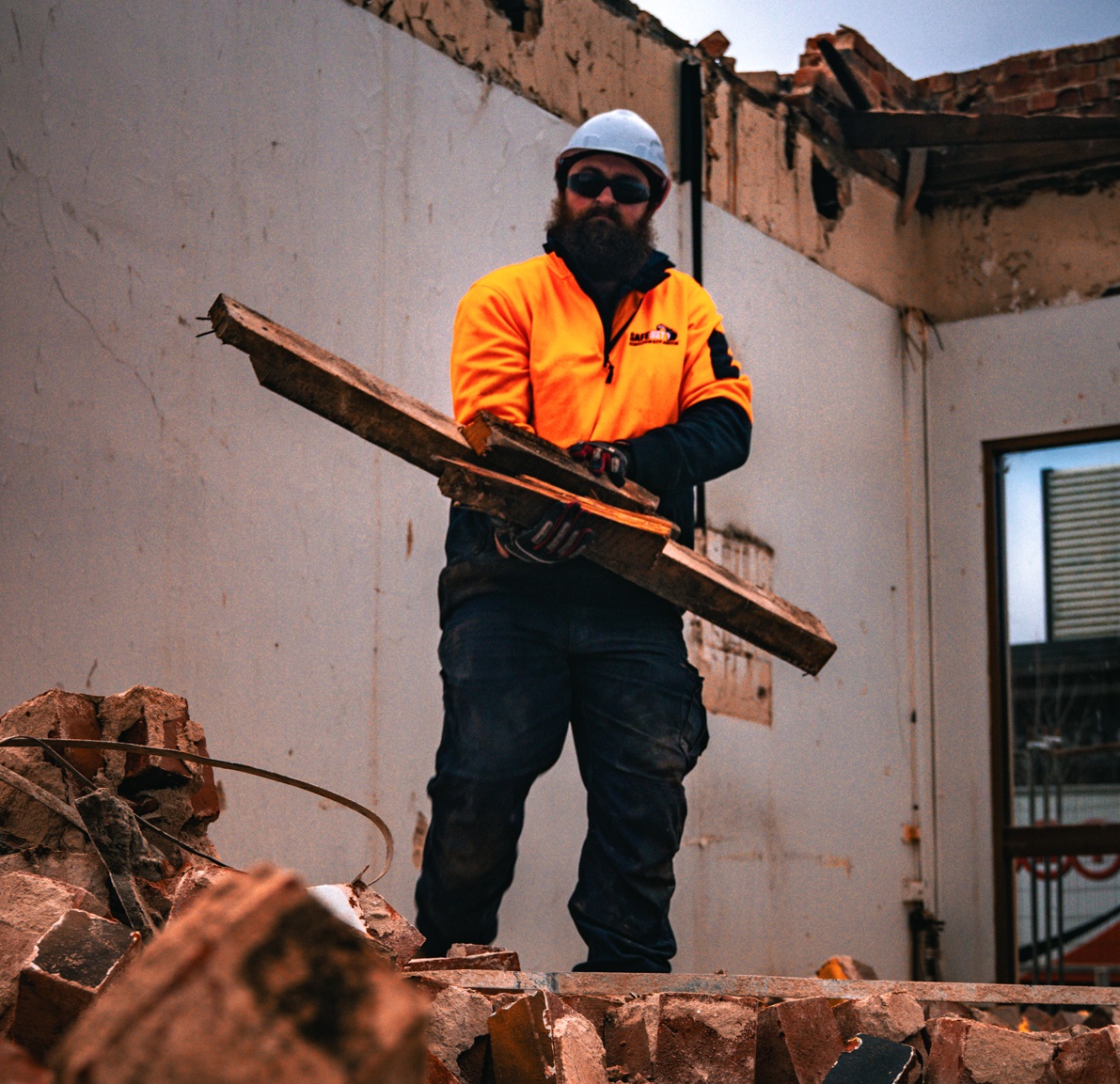At a glance
- Efficient sorting and recycling of debris minimises landfill waste.
- Rigorous safety measures ensure worker and public safety.
- Utilising waste-to-energy and repurposing methods for non-recyclables.
- Waste audits and source separation promote eco-consciousness.
- Expertise ensures compliance and peace of mind for clients.
In the ever-evolving landscape of urban development in Australia, the question of what happens after the dust settles from demolition holds significant intrigue. As towering structures give way to the promise of new beginnings, the meticulous orchestration behind the scenes by demolition companies becomes a pivotal narrative.
From the soaring skyscrapers of Sydney to the charming facades of Melbourne, the process of handling and disposing of demolition debris stands as a testament to the intricate balance between progress and sustainability. Join us as we delve into the dynamic world where precision meets eco-conscious strategies, uncovering the innovative techniques and environmental considerations shaping Australia’s demolition industry today, with a focus on demolition in Melbourne and demolition in Sydney.
Understanding Demolition Debris Types
Demolition debris encompasses the remnants of demolished structures vital to Australia’s urban renewal efforts. This debris includes concrete, metal, wood, and other materials requiring careful handling and disposal. Demolition companies in Australia manage this waste through methods such as recycling, landfill disposal, and salvaging reusable materials. Compliance with environmental regulations and sustainability initiatives is integral to this process, ensuring responsible management of demolition debris for a more sustainable urban landscape.
Demolition Debris Handling Process
The demolition debris handling process involves thorough site preparation, ensuring safety measures are in place, and using appropriate equipment and techniques for debris removal. The debris is then sorted and recycled to minimise waste, with innovative methods being implemented for efficient recycling. Non-recyclable debris is disposed of following landfill regulations or alternative options. Sustainable practices are promoted to ensure responsible debris disposal, ultimately contributing to a more environmentally friendly demolition process.
Demolition Site Preparation and Safety Measures
Thorough site preparation is essential to ensure a safe and efficient demolition process. This includes securing permits, conducting structural assessments, and identifying potential hazards.
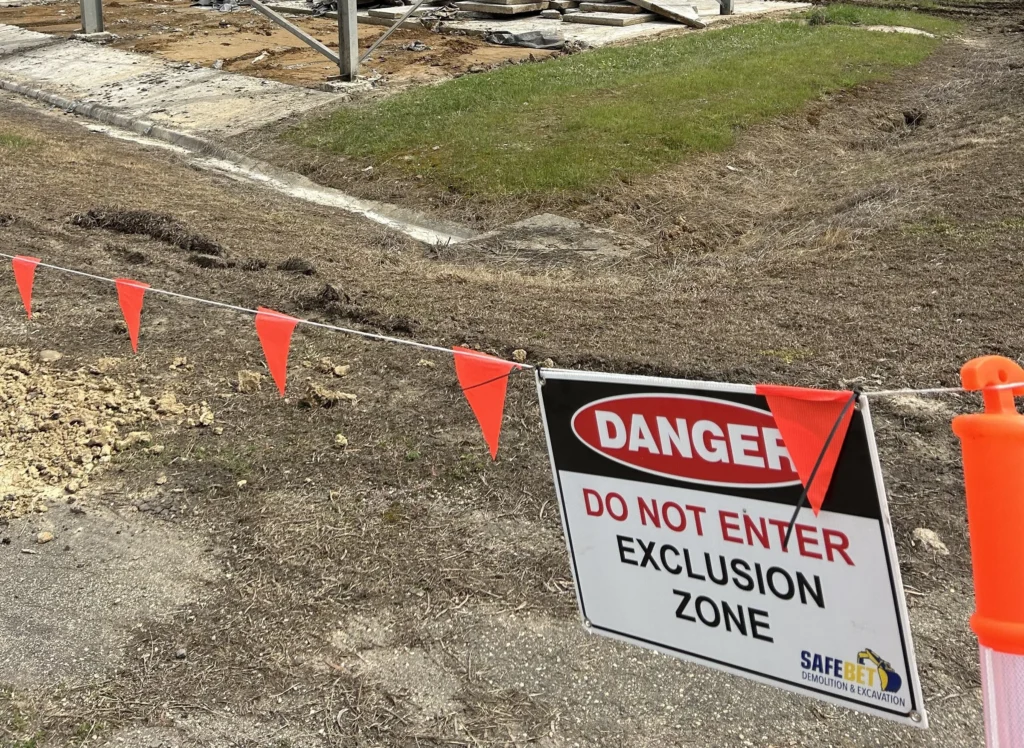
Safety measures such as installing fencing, signage, and barriers protect workers and the public. Additionally, safety protocols like the use of personal protective equipment (PPE) and implementing proper ventilation systems are crucial. By prioritising site preparation and safety measures, demolition companies minimise the risk of accidents and ensure a smooth demolition process.
Demolition Equipment and Techniques for Debris Removal
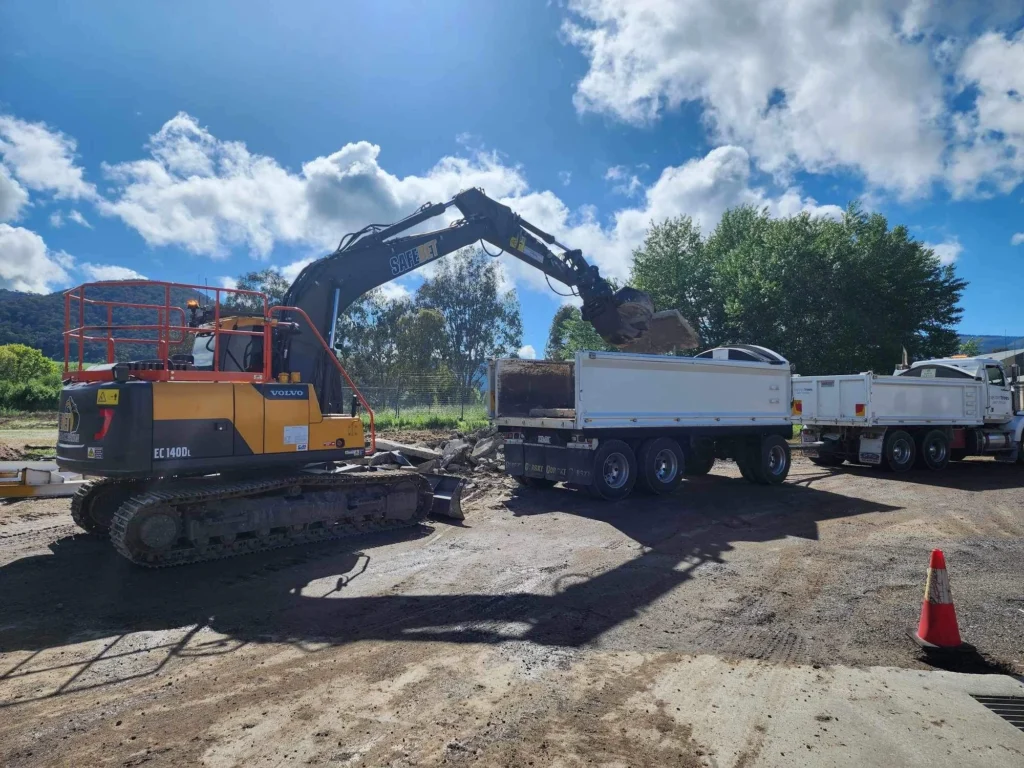
Demolition equipment and techniques are crucial for efficient debris removal during the demolition process. Heavy machinery such as excavators and bulldozers is commonly used to dismantle structures and clear debris. Cutting-edge techniques like controlled explosive demolitions or deconstruction methods help to minimise the impact on surrounding areas. These equipment and techniques ensure that the debris is safely removed from the site, allowing for a smooth and organised demolition process.
Sorting and Recycling Demolition Debris
Sorting and recycling demolition debris is a crucial step in the demolition process to minimise waste and environmental impact. Demolition companies employ various methods such as manual sorting, mechanical screening, and magnetic separation to separate different materials like concrete, metal, wood, and plastics. These materials are then sent to recycling facilities where they can be processed and reused in new construction projects, reducing the demand for virgin materials and conserving resources.
Benefits of sorting and recycling demolition debris
Sorting and recycling demolition debris offers numerous benefits, such as reducing landfill waste, conserving resources, and minimising environmental impact. Separating materials like concrete, metal, wood, and plastics can be sent to recycling facilities for processing and reuse in new construction projects. This helps to decrease the demand for virgin materials and promotes a more sustainable approach to demolition and construction practices.
Innovative methods for efficient debris recycling
Innovative methods for efficient debris recycling include advanced sorting technologies, such as optical sorting systems and magnetic separators, which streamline the process and increase recycling rates. Additionally, techniques like crushing and grinding can be used to transform concrete and other materials into reusable aggregates. These methods not only improve efficiency but also contribute to reducing the environmental impact of demolition debris.
Find Out – Most Common Demolition Safety Hazards and How to Manage Them.
Disposal Methods for Non-Recyclable Demolition Debris
Landfill disposal regulations and considerations
Proper disposal of non-recyclable demolition debris involves adhering to landfill regulations, including appropriate documentation, fees, and waste classification. It’s essential to consider factors such as transportation logistics and environmental impact when selecting an appropriate landfill for disposal. Compliance with local, state, and federal regulations ensures responsible and legal disposal.
Alternative disposal options for non-recyclable debris
When it comes to non-recyclable demolition debris, alternative disposal options can include waste-to-energy facilities, incineration, and repurposing for infrastructure projects. These methods reduce the environmental impact and maximise the use of materials that cannot be recycled. Proper documentation and compliance with regulations are still necessary for these alternative disposal methods.
Sustainable Practices in Demolition Debris Management
Sustainable Practices in Demolition Debris Management involve implementing strategies to reduce waste, promote recycling, and minimise environmental impact. This can include conducting a thorough waste audit, implementing source separation of materials, utilising advanced sorting technologies, and partnering with recycling facilities. By adopting these practices, demolition companies can contribute to a more sustainable construction industry and help preserve natural resources for future generations.
Promoting Sustainability through Responsible Debris Disposal
Promoting sustainability through responsible debris disposal involves implementing strategies such as waste audits, source separation of materials, and partnering with recycling facilities to minimise environmental impact. Demolition companies can also utilise advanced sorting technologies to increase recycling rates and reduce the amount of debris sent to landfills. By adopting these practices, they contribute to a more sustainable construction industry.
Importance of Hiring Reputable Demolition Companies
Hiring reputable demolition contractors is crucial for the proper handling and disposal of demolition debris. These companies have the expertise and resources to implement responsible disposal methods, ensure compliance with regulations, and minimise environmental impact. By entrusting the demolition project to professionals, clients can have peace of mind knowing that their debris will be managed in a sustainable and efficient manner.
Sorting and recycling demolition debris is a crucial step in responsible demolition waste management. This process helps to reduce the amount of waste sent to landfills and promotes sustainability in the construction industry. By implementing proper handling practices, such as site preparation, safety measures, and efficient debris removal techniques, demolition companies can contribute to a more environmentally friendly approach to demolition. Additionally, considering alternative disposal options for non-recyclable debris, such as waste-to-energy facilities or incineration, further minimises the impact on the environment. Hiring reputable demolition companies that prioritise responsible disposal methods is key to ensuring proper handling and disposal of demolition debris.
